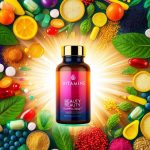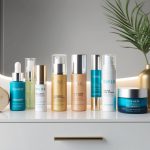Best Hair Growth Oils for Thicker, Healthier Hair: Top Picks and How to Use Them
Top Natural Oils for Thicker, Healthier Hair
Certain oils stand out for their ability to support hair thickness, promote healthy growth, and keep strands hydrated and strong. Many of these oils are easy to find and are used worldwide to tackle dryness, split ends, and weak follicles.
Castor Oil
Castor oil is known for its high concentration of ricinoleic acid, a unique fatty acid that is believed to support scalp health and stimulate hair follicles. This oil is particularly viscous, which helps lock in moisture and prevent breakage.
A significant benefit is its role in potentially boosting blood flow to the scalp when massaged regularly, supporting roots and lessening shedding. Cold-pressed or organic castor oil is preferred for hair applications, as it is less processed and retains more nutrients.
Many people also notice thicker-feeling hair and improved shine with regular use. Castor oil can also be combined with lighter oils if it feels too heavy.
It’s commonly applied to the scalp and roots, left on as a pre-shampoo treatment or overnight mask, and washed out with a gentle cleanser. For enhanced results, some mix in pumpkin seed oil or a few drops of rosemary essential oil, which may provide synergistic benefits for growth and thickness.
Coconut Oil
Coconut oil remains popular due to its composition of medium-chain fatty acids, primarily lauric acid, which penetrates the hair shaft easily. This helps reduce protein loss in both damaged and undamaged hair.
As a result, hair looks shinier, feels softer, and is less prone to breakage. Virgin coconut oil is typically recommended because it is minimally processed and contains the highest levels of antioxidants.
It works well as a deep conditioning treatment, especially for those with dry or frizzy hair. Regular use can help keep the scalp healthy by minimizing fungal and bacterial buildup.
It is generally applied from the mid-lengths to ends of damp or dry hair. For best results, leave it on for at least 30 minutes before washing it out.
Some users blend coconut oil with avocado oil for extra nutritional benefits, as both are rich in fatty acids and antioxidants.
Argan Oil
Argan oil, sometimes called “liquid gold,” is loaded with vitamin E, polyphenols, and essential fatty acids. These nutrients promote stronger strands, add shine, and help reduce split ends.
The oil is lightweight, making it ideal for daily use on both the scalp and hair lengths without causing greasiness. This oil is especially valued for protecting hair from heat styling and environmental stressors.
It is easily absorbed and can help tame frizz, making it a favorite for those with wavy or curly hair. Argan oil is also commonly found in many hair growth oils and serums tested by real people, providing noticeable improvements in hair health.
It can be applied as a leave-in conditioner, styling aid, or overnight treatment. A few drops go a long way, and it is suitable for most hair types, including color-treated hair.
Jojoba Oil
Jojoba oil’s structure is similar to the natural sebum produced by the scalp. This makes it particularly effective at balancing scalp oils without clogging pores.
It is rich in vitamins E and B, plus minerals like zinc and copper, all of which may help create a healthier scalp environment for hair growth. Jojoba oil conditions hair, adds softness, and helps reduce dandruff.
It is lightweight and non-greasy, making it suitable for fine hair types. Because it doesn’t weigh hair down, it can be used regularly in scalp massages or as a finishing oil.
Many use jojoba oil as a carrier for essential oils like rosemary or peppermint, which are believed to encourage hair growth. It can also be blended with argan or castor oil for a customized regimen.
Scientific and Expert-Backed Hair Oils and Serums
Hair growth oils and serums are supported by both clinical evidence and professional endorsement. Certain ingredients such as minoxidil, biotin, and multi-peptide blends are more heavily studied and recommended for promoting thicker, healthier hair.
Clinical Studies and Evidence
Clinical trials consistently highlight the efficacy of minoxidil for promoting hair regrowth in both men and women. As an FDA-approved topical treatment, minoxidil is often found in over-the-counter hair growth serums and is considered a gold standard for androgenetic alopecia.
Research also evaluates biotin supplementation, though it benefits primarily those with underlying biotin deficiencies, and the effect in the general population is less pronounced. Recent studies have shown promise with multi-peptide serums and ingredients like K18Peptide, designed to repair hair strength and integrity rather than directly stimulate new growth.
A 2020 review showed that serums combining botanical extracts (like rosemary oil) and peptides can support scalp health and help reduce shedding. Certain formulas, such as the Gro Hair Serum and Nutrafol, have also been tested in clinical settings for their ability to improve hair thickness, often reporting moderate success when used consistently for several months.
See more about the best hair growth serums that are clinically tested for results at Health.com’s hair growth serum guide.
Dermatologist and Trichologist Recommendations
Dermatologists most frequently recommend minoxidil-based treatments due to the robust clinical support and proven track record in hair regrowth. Trichologists, hair and scalp specialists, often support using targeted serums containing multi-peptide complexes alongside scalp massage to boost circulation.
Professionals commonly endorse products with caffeine, niacinamide, and rosemary oil, which may strengthen follicles and protect against further loss. Dermatologists recognize that a layered approach—incorporating nutritional support from supplements like Nutrafol and topical serums—can yield better results, particularly for thinning hair.
Experts also note that while biotin is safe for most, its routine use is best reserved for those with demonstrable deficiencies. Evidence-based formulations like the Mielle Organics Rosemary Mint Oil and K18 Molecular Repair Hair Oil make the list of top expert-recommended oils for those pursuing thicker, healthier hair.



